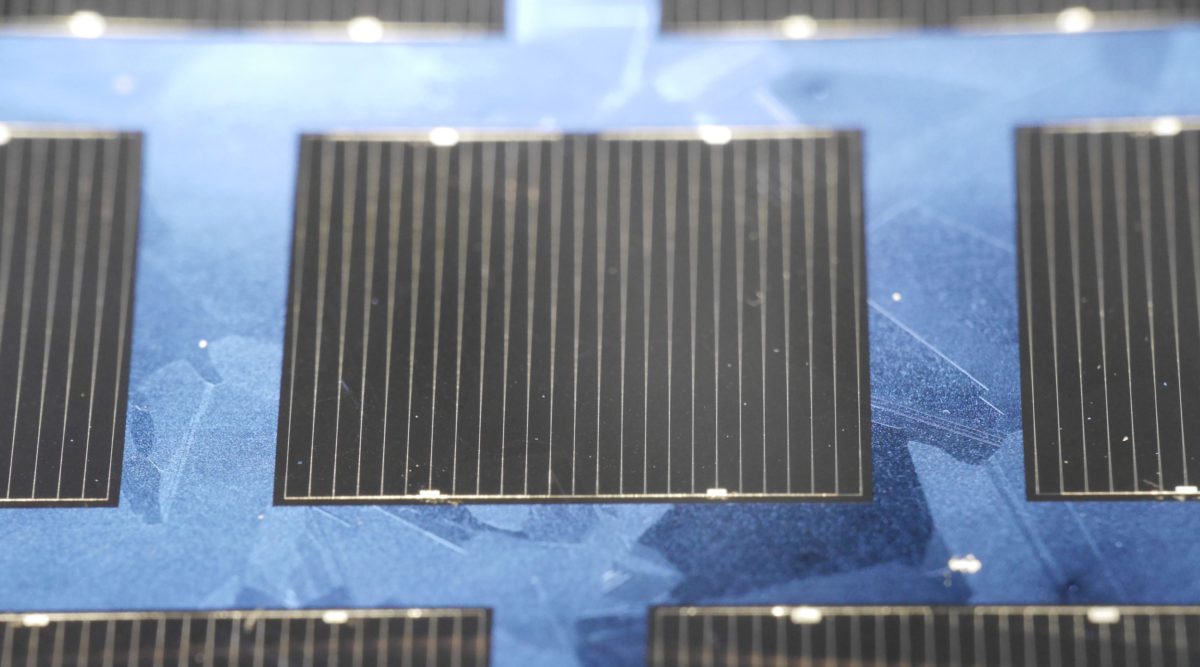Multicrystalline PV technology continues to take strides forwards regarding conversion efficiency. Researchers from Fraunhofer ISE claim that the result demonstrates how improvements in the multicrystalline material can deliver a boost in energy yield, resulting in the 21.9% multi cell efficiency record.
Fraunhofer ISE researchers have pointed to the Institute's ability to control the crystalline silicon PV production process, from crystalline material – presumably ingot and wafer – through to cell, as enabling the efficiency record. The crystallization process was optimized alongside the cell design, resulting in the 21.9% multicrystalline cell.
“Our goal is to develop an advanced cell technology for the n-type multicrystalline wafer that really demonstrates its full potential,” said Fraunhofer ISE's Jan Benick, in a statement. “The question is, how far can we get to closing the efficiency gap to monocrystalline material.”
The record-setting cell deploys Fraunhofer's TOPCon cell technology. It deploys passivated backside contacts, which are applied to the rear surface of the cell without patterning. The researchers claim that this allows for a simplified manufacturing process alongside higher energy yield.
Popular content
TOPCon technology has previously been deployed by Fraunhofer ISE on monocrystalline PV wafers, with the Institute achieving 25.3% cell efficiency on a mono cell contacted on both sides in 2016.
Scientists from Fraunhofer research departments and groups Silicon – Crystallization and Epitaxy, Innovative Clean Room Technologies for High-Efficiency Silicon Solar Cells, and Characterization and Simulation collaborated on the result.
In July 2016, Chinese manufacturer Trina Solar announced that it had achieved 20.16% conversion efficiency with its multicrystalline PERC technology. Trina claims that the result was achieved on industrial-scale production equipment.
This content is protected by copyright and may not be reused. If you want to cooperate with us and would like to reuse some of our content, please contact: editors@pv-magazine.com.



We look forward to the first 20% efficient production multicrystalline solar panel. Such benchmarks are arbitrary, and have little relevance to the continuous fall in pv costs, but it’s human to salute their achievement.